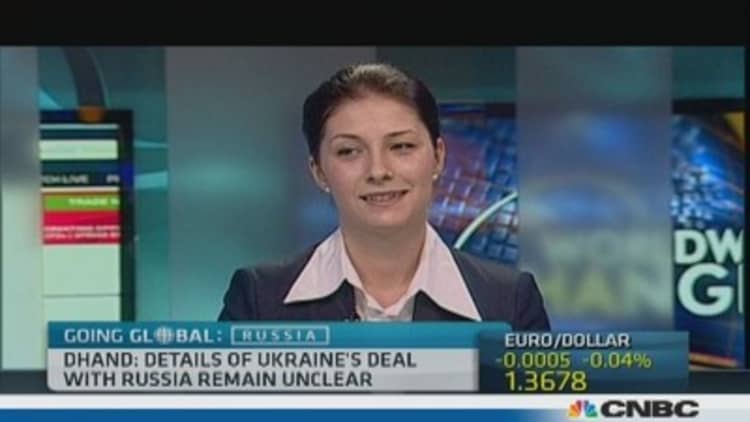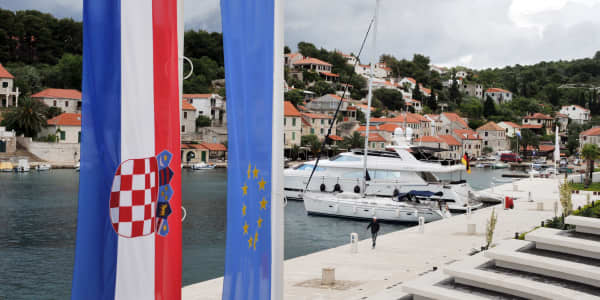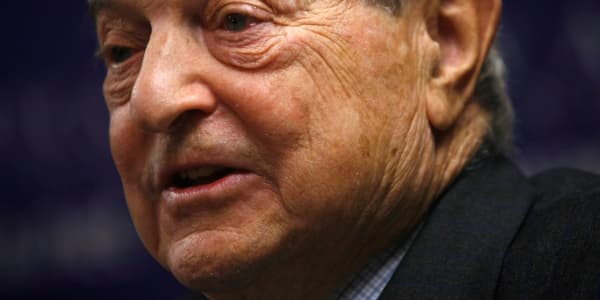The International Monetary Fund issued on Thursday a scathing report on Ukraine's financial situation, saying that the government of President Viktor F. Yanukovich had largely abandoned much-needed economic reforms that it had agreed to undertake as part of a deal in 2010 that provided more than $15 billion in loans.
The report suggests that Russia's offer this week to rescue Ukraine with another $15 billion in loans and a sharp discount on natural gas prices could be far riskier than President Vladimir V. Putin has suggested.
Putin announced on Tuesday that Russia would use $15 billion from its national welfare fund to buy Ukrainian euro bonds, and that Gazprom, Russia's state-controlled energy company, would reduce the price of gas to $268.50 per 1,000 cubic meters, from the current $395 to $410, saving Ukraine about $2 billion a year.
More from the New York Times:
Russia offers cash infusion for Ukraine
Ukraine's premier hails Russian aid, saying crisis has passed
Ukrainians gear up for holidays as protests continue
Ukraine is facing an increasingly severe economic crisis and had been in talks with the I.M.F. for additional aid. Those talks broke off in large part because Yanukovich and other officials said they found the required terms too onerous.Those terms included increases in household utility rates and limits on government spending.
The bailout from Russia, which Putin described at a news conference on Thursday as a gesture toward a "brotherly" country, comes without the requirements demanded by the I.M.F. That, however, could come back to haunt the Kremlin. The I.M.F.has said that without comprehensive reforms, including some tough austerity measures, any money provided to the Ukrainian government would essentially be thrown into a black hole.

Yanukovich's refusal last month to sign far-reaching political and free trade agreements with the European Union also set off a political crisis, in which thousands of protesters occupied Independence Square and several government buildings in Kiev, the capital.
At the news conference, Putin insisted that Russia had made a safe investment. The $15 billion "will be paid back," he said. "I want to remind you once again that we will earn 5 percent, and the bonds will be placed on the Irish Stock Exchange. I think the transaction will be done in line with British law, so it is protected. I do not see it as wasting money on our part. And, of course, it will be tangible support for our Ukrainian friends."
(Read more: Ukraine seeks$27.5 billion in aid from EU, PM)
In its report, the I.M.F. said it would most likely recommend less money to Ukraine in the future as a result of its poor track record. Based on its experience with Ukraine on the 2010 loan deal, the fund also suggested creating a new mechanism for canceling programs that go badly, particularly in cases like Ukraine's where the government is to blame.
"The program quickly went off track as the authorities stopped implementing the agreed policies," the fund wrote in a statement summarizing the results of a discussion about Ukraine at a board meeting earlier this week.

So far, Ukraine is current in its payments on the 2010 loans, but the I.M.F. severely chastised the Ukrainian government for excessive spending while it faced a recession. "Large pension and wage increases, generous energy subsidies and soccer cup spending led to a widening of the combined deficit of the general government and the state-owned company Naftogaz," the organization wrote.
The I.M.F.had demanded serious changes. "Directors recommended the authorities implement a package of comprehensive policy adjustments in several areas, including curtailing the fiscal and external account deficits, phasing out energy subsidies, strengthening the banking sector and improving the external competitiveness of the company," the report said.
(Read more: Ukraine maygain 'short-term benefits' by move east)
Some of Ukraine's most serious problems appear to be in the energy sector. The discounts on natural gas from Russia, while aiding the Ukrainian government's bottom line, may only worsen the overall challenges of excessive energy use and a distortion of energy subsidies, especially for households.
The I.M.F. strongly urged increases in utility rates, combined with aid to protect impoverished families. "Upfront, meaningful and broad-based tariff increases are essential," its report said.
The I.M.F.said it expected Ukraine to emerge from a recession in 2014, but it also issued a stark warning: "This outlook is subject to significant risks, emanating from the inconsistent policy mix, and heightened political and economic uncertainty in recent weeks."




